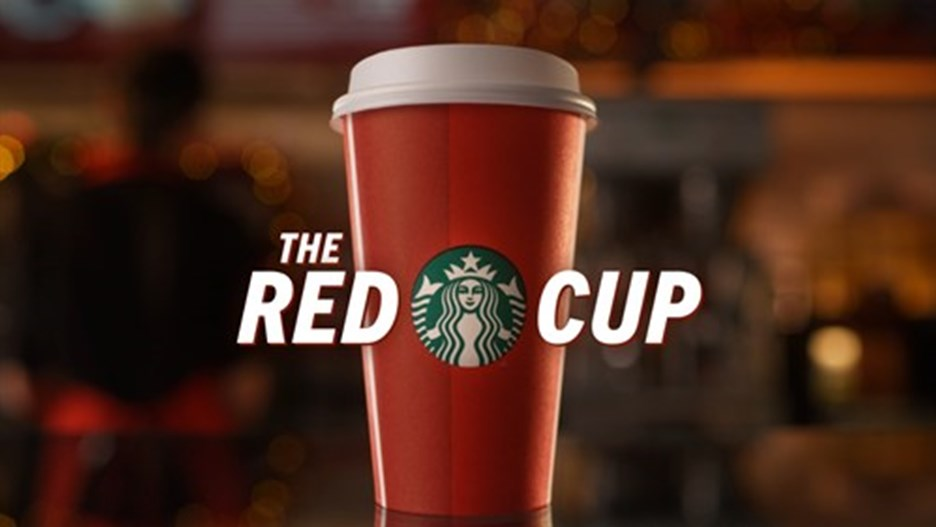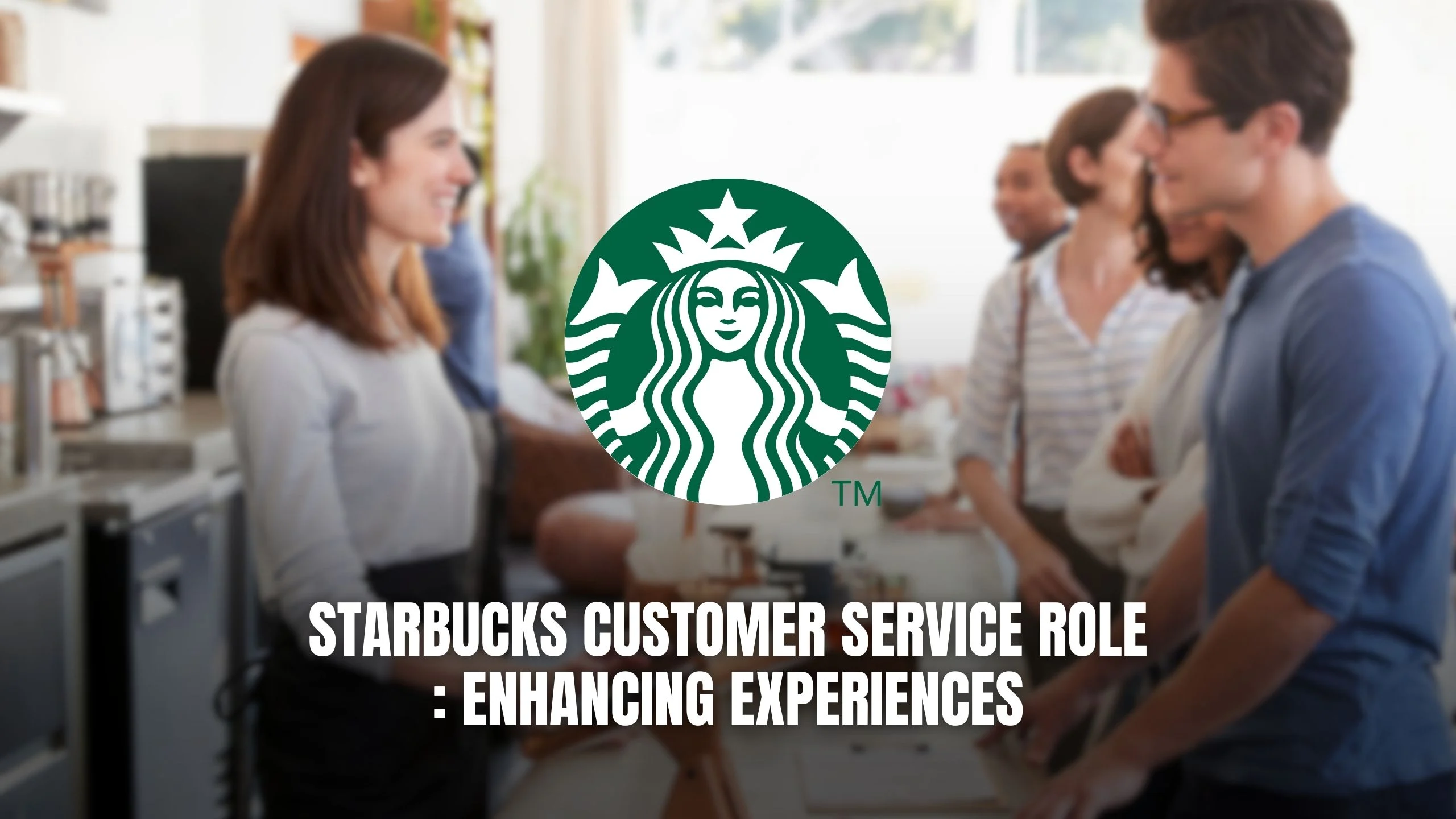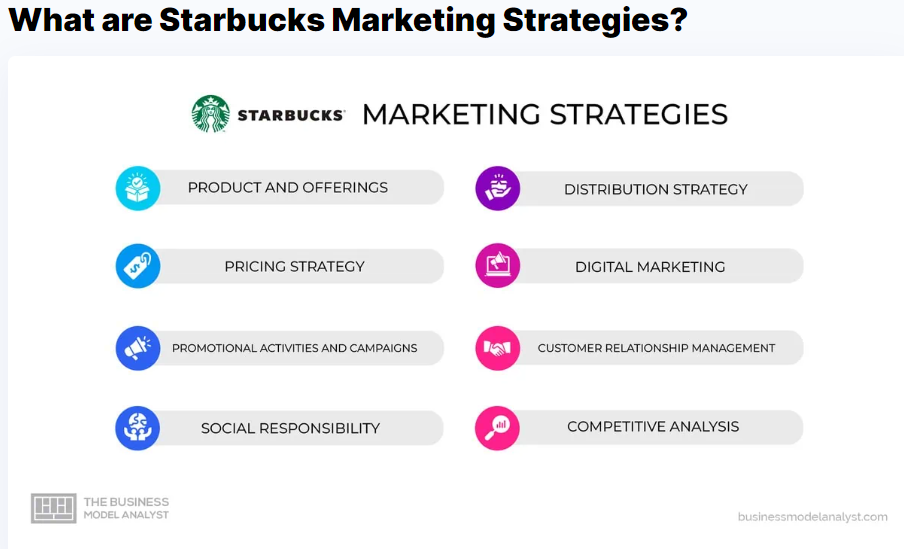The company has built a strong brand reputation by consistently providing high-quality products, creating a unique customer experience, and engaging in socially responsible initiatives.
Product and Offerings
Starbucks offers a wide range of products beyond coffee, including teas, snacks, pastries, and sandwiches, to appeal to diverse tastes. They regularly introduce seasonal and limited-time beverages to create excitement and tap into trends. Starbucks also emphasizes customization, allowing customers to personalize orders, enhancing their experience, and building loyalty.
Pricing Strategy
Starbucks uses a premium pricing strategy to position itself as a high-end brand, justifying higher prices through product quality, ethical sourcing, and the overall Starbucks experience. Higher prices foster an exclusive image, enhanced by rewards programs, free Wi-Fi, and cozy store environments. For specialty items like reserve coffees, Starbucks employs value-based pricing, appealing to customers willing to pay more for unique, premium offerings.
Promotional Activities and Campaigns
Starbucks engages customers and builds brand awareness through various promotional strategies. Limited-time and seasonal offers create urgency, while the Starbucks Rewards program fosters loyalty by rewarding repeat purchases. Social media is key to Starbucks’ promotion, as the brand actively interacts with followers, shares user-generated content, and runs contests. Collaborations with influencers and celebrities also help Starbucks reach a wider audience and enhance brand recognition.

Distribution Strategy
Starbucks ensures convenient access to its products through a mix of company-owned stores, licensed stores, and retail partnerships. Company-owned stores are strategically located in high-traffic areas, allowing Starbucks to control quality and the customer experience. Licensing agreements enable third-party operators to open stores in new markets, expanding Starbucks’ reach. Additionally, partnerships with grocery stores and retailers allow Starbucks to offer packaged coffee and ready-to-drink products, reaching customers beyond its cafes.
Digital Marketing
Starbucks focuses on digital marketing to engage customers and promote its brand. Its mobile app offers ordering, payment, rewards, and personalized offers, serving as a loyalty program. Starbucks maintains active profiles on platforms like Facebook, Instagram, and Twitter (now X) to share updates, run campaigns, and respond to customer feedback. Starbucks is active on social media and uses email marketing and digital ads to raise brand awareness and drive sales.
Customer Relationship Management
The Starbucks Rewards program is crucial for customer loyalty and gathering data on preferences. Starbucks emphasizes personalized service and actively listens to customer feedback to enhance its offerings and address customer needs.

Social Responsibility
Starbucks integrates social responsibility into its marketing by focusing on ethical sourcing, sustainability, community support, and employee welfare. Its commitment to ethically sourced coffee appeals to conscious consumers, as Starbucks supports sustainable farming and the welfare of coffee growers. The company also reduces its environmental footprint through waste management, energy conservation, and recyclable materials, attracting eco-friendly customers. Additionally, Starbucks invests in community support by partnering with nonprofits, supporting education, and encouraging employee volunteerism, fostering a positive brand perception among socially responsible consumers.
Competitive Analysis
Starbucks faces strong competition from established coffee chains and local cafés, prompting it to conduct competitive analysis and adapt marketing strategies. By monitoring competitors’ offerings, pricing, and customer experiences, Starbucks identifies opportunities for improvement and differentiation. The company focuses on its premium brand, quality products, and personalized experiences to stand out in the market. Additionally, Starbucks proactively analyzes consumer trends to anticipate shifts, allowing it to adapt its offerings and maintain a competitive edge.


